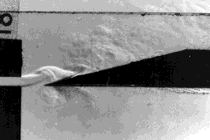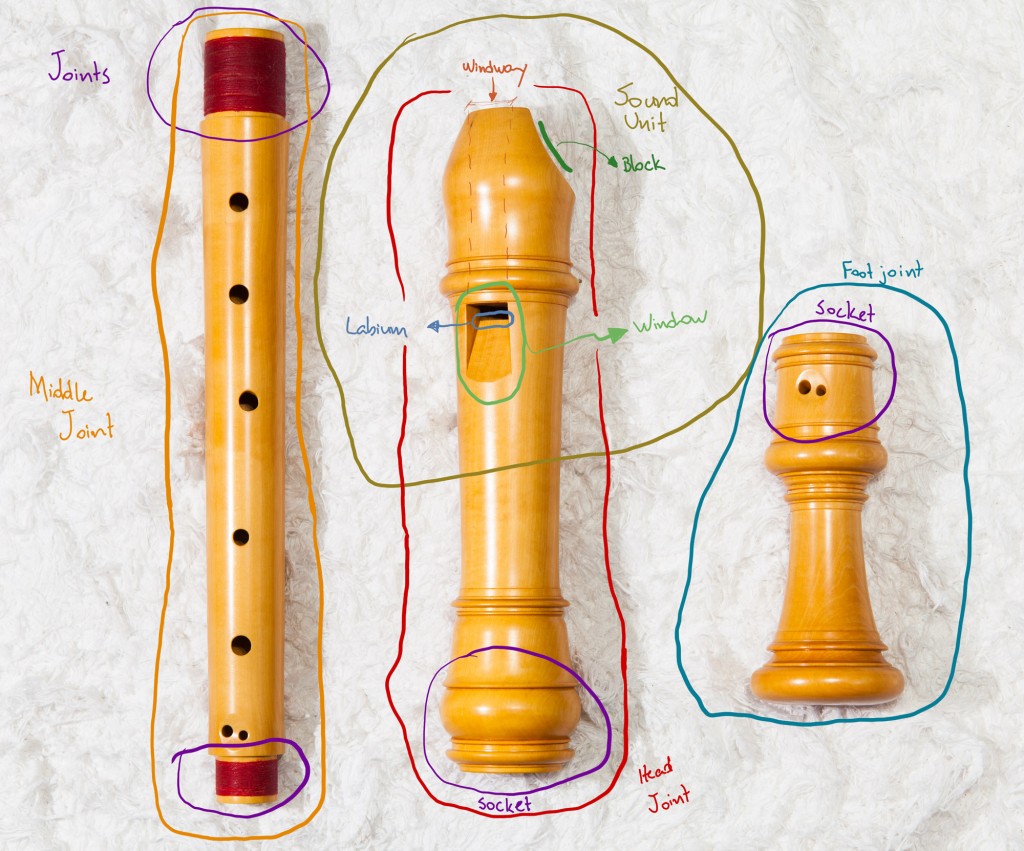 A imagem acima mostra como o som da flauta doce é produzido. Este vídeo foi produzido por Avraham Hirschberg, na Universidade de Utrecht. Uma explicação detalhada pode ser lida em seu artigo, em holandês, no endereço http://www.flute-a-bec.com/miko-fluit.html.
A flauta doce é um instrumento da família dos sopros, da família das madeiras, e como tal funciona pela vibração da coluna de ar dentro do tubo do instrumento. Essa vibração é produzida da mesma forma que em um apito: existe um canal que dirige o fluxo de ar ao encontro de uma parede que divide o fluxo em dois, chamaremos esta parede de lábio, e o lábio se encontra na janela da flauta. Como - Leia mais...
A imagem acima mostra como o som da flauta doce é produzido. Este vídeo foi produzido por Avraham Hirschberg, na Universidade de Utrecht. Uma explicação detalhada pode ser lida em seu artigo, em holandês, no endereço http://www.flute-a-bec.com/miko-fluit.html.
A flauta doce é um instrumento da família dos sopros, da família das madeiras, e como tal funciona pela vibração da coluna de ar dentro do tubo do instrumento. Essa vibração é produzida da mesma forma que em um apito: existe um canal que dirige o fluxo de ar ao encontro de uma parede que divide o fluxo em dois, chamaremos esta parede de lábio, e o lábio se encontra na janela da flauta. Como - Leia mais... Articles


 I have heard recurring questions among recorder players about how to care for the instrument, how to clean it, when to oil it and which oil should be used, what to do when the recorder clogs, and many others. This article is the first of a series dealing with various subjects, to clarify some of these questions.
First, I shall distinguish among the recorders themselves, because the care differs for plastic and for wooden ones. All care applied to plastic instruments also applies to wood instruments, unless stated otherwise.
Plastic or resin recorders
All wind instruments tend to condense water inside when played. This is due to th
I have heard recurring questions among recorder players about how to care for the instrument, how to clean it, when to oil it and which oil should be used, what to do when the recorder clogs, and many others. This article is the first of a series dealing with various subjects, to clarify some of these questions.
First, I shall distinguish among the recorders themselves, because the care differs for plastic and for wooden ones. All care applied to plastic instruments also applies to wood instruments, unless stated otherwise.
Plastic or resin recorders
All wind instruments tend to condense water inside when played. This is due to th
